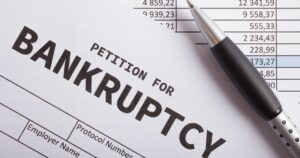When filing for bankruptcy, your creditors have rights. And one of those rights is to receive payment by submitting a secured claim form to receive payment on the debts you owe.
If filing for bankruptcy, it is probably because you owe a considerable amount of debt and your income can no longer satisfy those monthly debt obligations. In bankruptcy, “claims” refer to the outstanding balances of your debts that creditors say you owe. Meaning, this is the amount they tell the courts you have outstanding and request payment for during bankruptcy.
Secured claims are similar. But if your creditor has a secured claim, the debt was secured by property.
A Quick Review of Claims in the Bankruptcy Process
When you file for bankruptcy but you have money available to satisfy some debts, the court sends notifications to your list of creditors, giving them a deadline. The deadline refers to a creditor’s right to “claim,” and they must submit proof of that claim before the deadline or forfeit collection.
Information that the creditor must provide includes:
- The type of debt and a brief description of what it was for;
- The total amount due;
- If the debt qualifies for priority payment (meaning payments before other debts are paid off); and
- If the claim was secured or unsecured.
When you guarantee property as part of your credit, then the creditor will list it as a “secured” debt. By offering property, you agree that you will forfeit that property if you can no longer make payments on your debt – often known as collateral.
Two common types of secured claims involve mortgages and car loans. While you pay on these loans, the creditor still retains ownership. Even though you drive your car every day and you live in your house, until your loan is paid off completely, the bank owns that property. If you fail to stay current on your loan, the lender has the right to repossess or foreclose on that property.
Therefore, if you fall behind on your mortgage, the bank has the right to foreclose on your home and remove you from that home – regardless of how many on-time payments you made in the past.
The same applies to your vehicle. You drive it each day, you make payments for three years straight, but then you fall on hard times and fall behind by three months or more. When you file for bankruptcy, the creditor lists your vehicle as a “secured” debt, which means the court might allow them to take back the vehicle to cover the loss in payments.
Unsecured Debts Are Not the Same
Unsecured debts leave creditors with no rights to property. For example, if you purchase a new set of furniture on a credit card, it is an unsecured debt. Therefore, the creditor cannot repossess your furniture to pay off that credit card’s balance.
The most common unsecured debts include credit cards, medical bills, payday loans, and personal loans.
Listing Your Creditors by Their Claim Right
When you file for bankruptcy, you disclose creditor claims. The information is then used to notify creditors about your pending bankruptcy case and give them a chance to refute, verify, and request priority payment.
Creditor claims in your bankruptcy are listed as such:
- Schedule D: For Secured Debts – Any creditor listed under Schedule D in your bankruptcy filing will have secured debts, including your mortgage, car loans, and any credit extended to you with collateral.
- Schedule E/F: Unsecured Debts – Creditors in this category have no claims for property. However, creditors in this category can still request priority status, especially if it involves unpaid child support, past due federal income taxes, and other debts that qualify for priority status. These debts are paid before others if you have any money to put toward debts in your bankruptcy.
Creditors Can Place a Lien against Your Property
Secured debts allow the creditor to place a lien against your property without consent from you. Now, if you have filed for bankruptcy, you do have an automatic stay. This means creditors cannot seize the property during this protected phase.
What Will Happen to Secured Debts and the Property Attached to Them?
If your creditor does have a secured debt, they will get paid in some way.
While the bankruptcy can discharge your debt due, it will not remove the lien. Instead, you are just no longer liable for the debt itself. The lien, however, gives the creditor rights to the property or collateral.
Therefore, if you want to keep the secured debt property, you must continue making payments on those debts. When you have significant property attached to secured debts, Chapter 13 may be the better option instead of filing for Chapter 7. With Chapter 13 bankruptcy, you will restructure and create a court-approved repayment plan. This means, instead of discharging your debts, you are paying them off. Often, you will pay less than the original amount on unsecured debts, too.
Can You Get Rid of Liens While in Bankruptcy?
Some liens you may remove during bankruptcy, such as a judgment lien or any liens placed for unsecured debts. However, the only way to remove a lien on a secured debt is to reaffirm the debt. This means you will create a repayment agreement and stay current on payments to that creditor (which means you are not including them in the bankruptcy), and your attorney may be able to negotiate having the lien removed once you are current.
Do You Have Secured Debts? If So, You Need a Bankruptcy Attorney
Secured debts complicate bankruptcies, and you cannot assume that, while filing for Chapter 7, all debts erase immediately. When you have secured debts, creditors have claims on your property and they will exercise their right to collect that property to satisfy a debt. Therefore, you need an attorney to help protect your home, car, and other personal property tied to a debt.
While your creditors have rights, so do you. Contact us today to arrange a no-obligation consultation.

